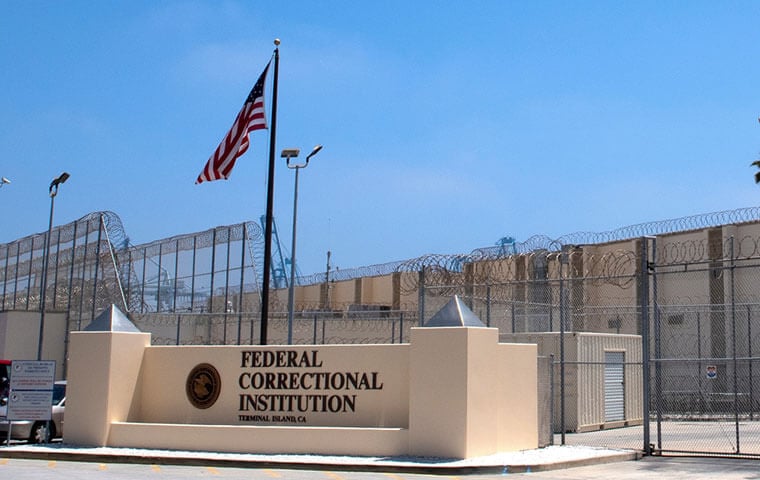 The case involved the removal of a prisons employee for improper contact with a former inmate, and where an arbitrator only upheld one of two charges. Image: Robert V Schwemmer/Shutterstock.com
By: FEDweek Staff
The case involved the removal of a prisons employee for improper contact with a former inmate, and where an arbitrator only upheld one of two charges. Image: Robert V Schwemmer/Shutterstock.com
By: FEDweek StaffWhen only some of the charges that underlay a disciplinary action against a federal employee are upheld on review, the deciding official should not simply defer to the agency’s choice of penalty, a federal appeals court has held.
In case No. 2022-1575, the Court of Appeals for the Federal Circuit returned to an arbitrator a case where the arbitrator upheld only one of the two grounds the Bureau of Prisons cited in removing an employee on grounds of improper contact with a former inmate. The arbitrator affirmed a charge of violation of anti-fraternization policy but did not sustain a charge of failure to report such a relationship, finding that the employee at first did not know of the other person’s former incarceration and reported it as soon as she did learn of it.
The arbitrator nonetheless upheld management’s decision to remove the employee, saying the agency was entitled to deference. But on appeal, the court said that in that situation an arbitrator is “required to independently determine the maximum reasonable penalty to be imposed.”
That must be done, it added, by analyzing the so-called Douglas factors, a list of considerations that may work in favor or against the employee. In this case, it said, the analysis of those factors “amounted to nothing more than a deferential review” of management’s decision, where the arbitrator “is the one who must determine the maximum penalty” if all the charges are not sustained.
OPM Advises Agencies on Conducting RIFs During Shutdown
Updated Shutdown Contingency Plans Show Range of Impacts
Use Shutdown as Justification for More RIFs, OMB Tells Agencies
Unions Win a Round in Court Disputes over Anti-Representation Orders
Deferred Resignation Periods End for Many; Overall 12% Drop
Senate Bill Would Override Trump Orders against Unions
See also,
How to Handle Taxes Owed on TSP Roth Conversions? Use a Ladder
The Best Ages for Federal Employees to Retire
Best States to Retire for Federal Retirees: 2025

